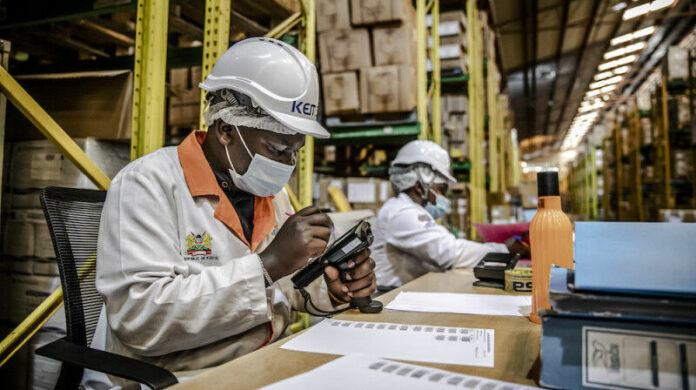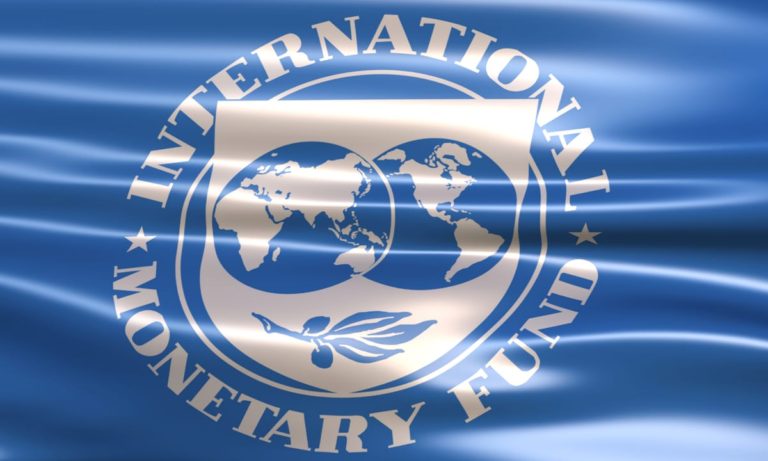The e-POD app is assisting health care workers to monitor family planning supplies in Kenya

Denis Mutirithia, a frontline health-care worker at Isiolo County referral hospital, plays a critical role in saving lives – and he now has a new digital tool to help him do so. The pharmaceutical technologist is responsible for forecasting and preventing shortages and stockouts of critical medical supplies such as contraception.
If he receives stock from the Kenya Medical Supplies Authority (KEMSA) on time, the hospital’s patients will have access to the medicines they require at the time they require them. However, delayed supplies can cause a slew of problems, ranging from illness to unintended pregnancies and an increased risk of maternal and newborn deaths.
Family planning and contraception have been among the most severely disrupted services as the COVID-19 pandemic has ravaged health systems and closed down health facilities.
The most vulnerable women and girls bear the brunt of the costs, with spikes in unintended pregnancies among adolescent girls reported in some parts of Kenya.
“When a woman’s reproductive health is stymied, her life is stymied,” said Editar Ochieng, founder of a women’s shelter and legal aid organization in Kibera, Nairobi’s sprawling slum. “Access to contraception is one of the most important empowerment tools that women in Kibera require to improve their lives, but it is frequently unavailable.”
Women-empowerment innovations
Now, a new mobile phone app is poised to transform the lives of health-care workers like Mr. Mutirithia. The Electronic Proof of Deliveries, or e-POD, app, which was developed to improve essential deliveries across Kenya, keeps track of supplies to primary health facilities with the simple touch of a button.
“I can tell when a specific delivery of family planning commodities is expected to arrive by checking the app on my phone.” This allows us to advise clients accordingly, ensuring that they receive their preferred method at their next appointment,” he says.
At the 2021 Global Health Supply Chain Summit in December 2021, the e-POD app received an award for best innovative health supply chain solution. It has so far been implemented in ten counties across the country, and it is expected to be available in all 47 counties by mid-2022.
The mobile app was created as part of the Last Mile Kenya program, which was implemented through a collaboration between KEMSA and Coca-Cola Beverage Africa, with funding from UNFPA. It employs GPS to ensure that deliveries arrive where and when they should, and health facilities can easily report back on whether they received the correct specifications. The app also tracks order turnaround times to avoid delays that could result in depleted stocks of life-saving supplies.
“With this new system, we will be able to ensure deliveries to the correct health facilities, in the right quantities, and at the right time,” said Edward Njoroge, Acting Chief Executive Officer of KEMSA.
e-POD is one of two new family planning tracking apps developed with UNFPA assistance. The second application, Qualipharm, was developed in collaboration with the local public health organization HealthStrat to track consumption of family planning commodities at the county, sub-county, and facility levels. According to Charity Koronya of UNFPA, these are “a game changer, not only for health care staff but also for citizens who rely on public health facilities to access life-saving commodities.”
The COVID-19 pandemic has hampered women’s access to family planning information and services worldwide, with an estimated 12 million women experiencing disruptions in family planning services since the outbreak began, particularly in low-income countries and marginalized communities.
In Kenya, UNFPA collaborates with local and international partner organizations to strengthen efforts to ensure universal access to and rights to sexual and reproductive health care, with the goal of reaching over 900,000 people with family planning services by 2020.







